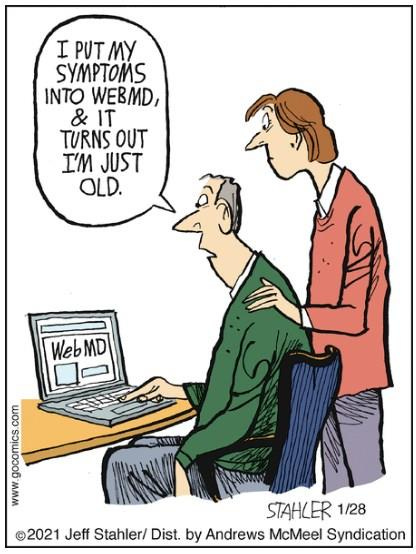What to do when your baby is hospitalized: Actionable advice from a NICU doctor
I would help you at the bedside if I could. This is second best: tips from over a decade of supporting families.
This advice works best for NICU families, but applies to anyone whose family is in the hospital. Take what you need, and leave what you don't. Bookmark it and come back to different sections as you need them; each includes specific action steps you can take today.
If you found this helpful, I would be grateful for your help by re-stacking this, commenting, subscribing or buying a coffee.
*
No one dreams of ending up in the NICU, or having a loved one hospitalized. It's a total roller coaster, rapid-cycling between hope and despair, praying for the best while picturing the worst. You feel stripped of agency, hoovered up into the enormous healthcare tornado, wishing you could trade places.
As a neonatologist (NICU doctor) and pediatrician, I have helped thousands of families adjust to having a baby in the hospital. These are the tips I give them, which I use myself. I’ve broken them into a few categories:
1. Get your mind right
Externalize uncertainty
The first step, like in AA, is to name the problem: uncertainty. In fact, go further: picture the uncertainty. Is it a little dust cloud? Is it a gargoyle with gnarly teeth? The more you can externalize this unwelcome fellow traveler, the easier you can wrestle back part of your brain. High-stakes uncertainty, like we have in healthcare, is painful for everyone (including doctors!). If we can see it as a thing separate from ourselves, we can better plan to mitigate it.
✅ Action step: Give your uncertainty a name or image - making it concrete helps you manage it.

Clarify communication preferences
One way to mitigate uncertainty is to clarify how you will be updated on changes. Some units have family-centered rounds where you can hear the team make the plan and ask questions. The bulk of communication, usually, happens via nurses.
Ask how updates are communicated and when to expect calls about concerns. Be clear with the medical team about how you like to receive information. In my experience, most people who request updates for non-emergent changes in the middle of the night come to regret it. Lost sleep isn't worth it when the news could wait till morning. But if that's what you need, let your team know!
✅ Action step: Ask your nurse today about the unit's typical update schedule and decide if you want non-emergency night calls.
Keep information organized
This can help with both communication and uncertainty. Have a running list (your notes app or a notebook) of:
Your baby's team members - especially subspecialists who may need follow-up appointments after discharge
Questions for the team - if you’re anything like me, you'll forget half of what you want to ask and half of what they said the second they walk away
Major procedures and dates - hospitals still rely on faxes! Electronic medical records don’t communicate with each other. Having this list can make life easier.
✅ Action step: Start three separates notes in your phone or notebook with the headings: Team Members, Questions, and Important Dates.
Consume information carefully
The Internet is a cesspool of baloney, the appeal to nature fallacy, pressure on parents, and tradwife propaganda about how families "should" look. Try to avoid momfluencing accounts - they're curated fictions cooked up for social media businesses.
Be wary of message boards. The stories people share may be true, but they're not your baby's story. What worked for them is one-time, anecdotal evidence - and there may be many details they aren’t sharing that are critical for understanding the context.
For medical info, stick to children's hospital websites and the American Academy of Pediatrics. My goal is to build a trove here at Babies, Explained of accessible explanations for common conditions. Until then, ask your doctor where to best look things up or if they have materials to share with you.
✅ Action step: Ask your doctor for 2-3 trusted resources specific to your baby's condition.

Make space for feelings
Birth is often described as a trauma, in that it divides life irrevocably into a before and an after. Illness does the same. It's normal to have fear, ambivalence, gratitude, and pain all at once. It's normal to feel like you can't do this. Honor these feelings and let them pass.
✅ Action step: Share one difficult feeling with your partner, friend, or journal today - no need to fix it, just acknowledge it.
What I tell parents - and I mean this with my whole heart - is to be aggressive about being gentle with yourself. That sounds paradoxical, but think about how intentional you want me to be about being gentle when caring for your precious little one.
Protect the positive
This one is really important and easily overlooked. The NICU and all hospitalizations are full of so many disheartening news. This means you need to be even more intentional about keeping a record of positive milestones - pictures, dates, first touches, first holds, first books read, first diaper change, coming off breathing support, first bottle, first bath. These aren't just memories; they're testaments to your baby's strength and yours.
Some parents want to forget the whole NICU experience, which I understand completely. Still, I recommend documenting these steps - you can always keep them in a ‘hidden’ photo album. Looking back, you'll be amazed by your resilience. And - if you would indulge me, I'd be beyond honored if you shared these milestones with our community here.
✅ Action step: Take one photo or write down one positive milestone today, no matter how small.
2. Prioritize your own health
Especially for birthing parents, we have to acknowledge and honor that your body has just been through a wild journey and needs healing.
This is a marathon you didn’t sign up for. You didn’t choose this long slog, but approaching it strategically, focusing on rest and nourishment, will help you. It may feel selfish or even frivolous to do so, but as with a training plan, it will keep you limber enough to adapt to whatever comes.
What I tell parents - and I mean this with my whole heart - is to be aggressive about being gentle with yourself. That sounds paradoxical, but think about how intentional you want me to be about being gentle when caring for your precious little one. Be that dedicated to being gentle with yourself.
Make a plan for it. Ask yourself what activities will help you heal (which may change every day). Try to prioritize sleep, which sounds impossible to tell any new parent (especially in the hospital, the worst place for rest) but try to at least be horizontal sometimes.
✅ Action step: Set a timer for a 10-minute horizontal break today, even if you don't sleep.
3. Realign your relationships
Your partner
Partner relationships can really suffer in the face of a chronic illness (or protracted hospitalization). Unfortunately, studies show that chronic illness is a source of disconnect and even divorce. That’s obviously the worst case scenario, but illness can test all relationships. Two people rarely have identical reactions to their baby being hospitalized. Be tender with each other and leave room for different reactions. There will be times when one of you thinks the worst, the other one thinks the best, one of you is panicking, one of you is trying to keep it together. That is all normal!
The important thing is to try to make those differences a source of interdependence and connection, rather than frustration and contempt. Reinvest in your connection by spending non-hospital time together. Be intentional about focusing on just each other, whether it's couch time, breakfast at home, or dinner out. It's not selfish; it's an investment.
✅ Action step: Plan one non-hospital activity together this week, even if it's just coffee at home.

Extended family
Every family dynamic is unique. We all have those relatives we’d be fine hearing from a bit less often, and others who are our entire world. Prioritize accordingly. You don’t owe anyone information or updates, unless that is serving you right now. People can love your baby but still respect your needs and boundaries. Be ruthless here; if extended family (grandparents, aunties/uncles, cousins, friends) are asking for updates but your bandwidth is low, feel free to politely decline. Say that this time is just for you and your partner and you’ll be in touch later.
People check in to show support and because they love you. But managing everyone's feelings gets exhausting fast. That's not your job; your job is loving your baby and caring for yourself.
Find your most competent friend - we all know someone who can make an opera from a Google spreadsheet - and appoint them spokesperson. They can manage the updates, group text, GoFundMe, or meal train.
For others, keep a standard text pre-written in your notes app for easy copying/pasting: “Thank you for reaching out! Things are overwhelming so [friend] is helping coordinate. They'll let you know what's happening and how to help. I'll be in touch when things settle." Right now, you need to focus on what fills your cup only. You’ll be back when things get easier.
✅ Action step: Choose your designated spokesperson friend.

Siblings
I want to pay careful to attention to your baby’s siblings. Studies show that siblings can really struggle with growing up alongside chronic illness, in the role of the healthy counterpart. Try to give them some times of solo focus; plan activities just for them (extended family can be very helpful here).
Also, this may sound paradoxical, but include them in what’s going on. While NICUs typically restrict sibling visits due to infection control (little germ hotels that they are), involve them in other ways. They can draw pictures, give presents to the baby, receive presents from the baby, record stories, or color in pages from NICU-themed coloring books.
If your hospital has one, use the Child Life specialist. They're trained specifically in communicating medical information to children and supporting siblings. Children pick up everything and may hold back their own fears to protect their parents. Child Life can help them work through those concerns.
✅ Action step: Ask Child Life for age-appropriate activities, or have siblings draw a picture for the baby's space today.
Pets
If you have an animal family member in your house, I recommend taking something from the NICU or from the hospital for them to smell (like a hat or onesie that your baby wore) so that you can introduce the baby to them slowly.
✅ Action step: Take home a worn hat or blanket with baby's scent for your pet to investigate.
Nurses
Make friends with the nurses. They hold the keys to the kingdom in the hospital and can be fierce advocates for you and a tremendous source of support and reassurance.
Nurses work long hours, on their feet, away from their own families, juggling emotional and physical needs (followed by a ton of annoying charting). Some kind words go a long way, or if you’re up to it, some treats never go amiss. So many of the hospitals I’ve worked at barely have a proper break room for nurses, and no free coffee (a sharp contrast to the tech company cafeterias and their smoothie bars!). Of course, nurses don’t need to be bribed to do their best care for your baby; however, we are all human and relationships work better when everyone feels appreciated. Making friends will make your life easier and let you feel more comfortable.
✅ Action step: Learn your nurses' names.

4. Accept help
This one flies straight into the face of the American ethos of rugged individualism, and our cultural sense that illness is shameful and private. Plus with the permeation of momfluencers into the culture, it’s easy to believe that impossible standards are realistic - perfect breastfeeding, spotless counters, immediate post-partum weight-lifting. Woof.
In the real world, accept help. It’s hard! It’s really hard. But people who love you want to help. You aren’t a burden, you are doing them a solid (think how good it feels to give help when you are in a position to). To ease the emotional labor of teaching them how to help you, offer a menu of options:

Financial help
No one needs endless flower bouquets, but everyone likes a clean house and food in the fridge. A DoorDash gift card, Walmart/Amazon gift card, or a GoFundMe can make daily survival easier. Five bucks here and there can really add up. If your friends are feeling splurgier, they can chip in for a cleaning service, laundry dropoff, or a treat for you like a haircut or a massage.
✅ Action step: Let your spokesperson know one specific thing that would help most (meal delivery, house cleaning, etc).
Activities help
Maybe your friends have some time on their hands. Can they help clean your house a little, do a load of laundry for you, or take your older kid out to a movie or to the zoo? Think about how gratifying it would be for you to help a beloved friend this way. Accepting this help does not make you a burden; this is how we show up in community for each other.
✅ Action step: Pick two concrete tasks friends could help with this week.
You are an irreplaceable part of your baby’s life and their health. I’ve seen so many sick babies’ vitals improve once their parents were near. They know you. They love you. They feel your love.
Case management help
Your hospital’s case manager (in some hospitals, a social worker) is your new best friend. They can navigate insurance, arrange equipment or visiting nurse care, identify benefits you qualify for, and handle paperwork for parental and emergency leave. They might help you stay closer to your baby through Ronald McDonald house. They know insurance company gatekeepers by name and understand the paperwork maze. Use them. If there's a way to make something happen, they know it. Don’t be shy about reaching out - this is what they’re there for.
✅ Action step: Put the case manager’s (or social worker’s) number in your phone. Ask if you are entitled to any additional benefits.
Mental health help
If there’s any chance that you would be interested in postpartum mental health support (and who among us couldn’t use some more support?), I would start looking into it ASAP. I’ve had a lot of parents realize a couple weeks in that they would benefit from more structured help, and then get stuck on a waiting list for months.
Get on a waiting list right away, even if you’re unsure - you can always cancel, but you can’t speed up the list if you’re struggling. Postpartum mental health needs are extremely common, and support is scarce. It sucks and is super unjust. I wish more was available and it was easier to access.
If your needs are more urgent, look into PSI, an organization that has a helpline (not an affiliate; I just believe in their mission).
✅ Action step: Save the PSI helpline number in your phone (1-800-944-4773; help available in English and in Spanish) and ask your case manager/social worker about postpartum mental health services.
5. Three important truths
Progress is never perfectly linear; it’s a sawtooth with steps forwards and backwards. This means there will be good days and bad days, but the overall trend is what matters.
This is your baby and your baby needs their family. You are an irreplaceable part of their life and their health. It often doesn’t feel that way, especially when they’re too sick to be held or touched.
Even the most extremely preterm infants, with underdeveloped vision and fragile hearing, can sense you through touch and smell. Your voice and arms can comfort better than some medications.
In my years of practice (not evidence-based, but often experienced) I’ve seen so many sick babies’ vitals improve once their parents were near. They know you. They love you. They feel your love.
Minutes turn into hours. Hours into days. Days into weeks. Time will pass. You will get through this.
My deepest hope is for every family is to take home a healthy baby, and I have to acknowledge in rare cases, this doesn’t happen. My heart goes out to those babies and to those families. Few things in life are more painful.
Thankfully, those are more rare cases. You will survive this brutal period. You’ll look back on it to see a painful blur, amazed at how strong you were. How strong you still are. Many better days will come.
*
Thank you for being here at Babies, Explained! I am grateful for your time. If you have other tips, please share them in the comments!
*
Disclaimer: The content provided in Babies, Explained is for educational and entertainment purposes only. It is not intended as medical advice, diagnosis, or treatment. It does not establish a doctor-patient relationship. Always consult with your healthcare professional regarding any medical concerns or decisions. The views and opinions expressed here are my own and do not represent the positions, policies, or opinions of my employers or any affiliated organizations. While I strive for accuracy, the information presented here may not apply to your unique situation.





